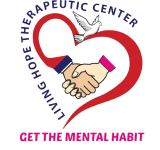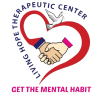Community sensitization and training are important strategies in addressing addiction and promoting recovery within a community.
Here’s an overview of how these approaches can be beneficial:
1- Reducing Stigma:
Community sensitization efforts aim to raise awareness and reduce the stigma associated with addiction. We do public education campaigns, community dialogues, and anti-stigma initiatives.
By challenging misconceptions and promoting empathy, these efforts can create a more supportive and inclusive environment for individuals and families affected by addiction.
2- Increasing Knowledge and Understanding:
Community training programs provide education and skill-building opportunities for various stakeholders, such as healthcare professionals, educators, law enforcement, and community leaders.
These trainings can enhance the community’s understanding of addiction as a chronic, treatable condition, and equip them with the knowledge and tools to effectively support individuals in recovery.
3- Strengthening Community Partnerships:
Community sensitization and training can foster collaboration and partnerships between different organizations and sectors within the community, such as healthcare providers, social services, law enforcement, and faith-based institutions.
These partnerships can lead to the development of coordinated and comprehensive approaches to addiction prevention, treatment, and recovery support.
4- Improving Access to Resources:
Community-based efforts can help identify and address gaps in addiction-related resources and services within the local community.
By raising awareness and advocating for increased access to evidence-based treatment, harm reduction services, and recovery support programs, these initiatives can improve the availability and utilization of essential resources.
5- Empowering Individuals and Families:
Community sensitization and training can empower individuals and families affected by addiction by providing them with information, skills, and a supportive network.
This can include educating community members on how to recognize the signs of addiction, access treatment and recovery services, and support their loved ones in the recovery process.
6- Promoting Community-Driven Solutions:
By engaging the community in the sensitization and training process, these efforts can foster a sense of ownership and investment in addressing the local addiction-related challenges.
This can lead to the development of community-driven solutions that are tailored to the unique needs and resources of the local context.
Integrating these strategies into a comprehensive approach to addiction prevention and treatment can be a powerful way to create lasting, community-level change and support individuals in their journey towards recovery..
Note: This is a very big project that we must invest in our energy,time,finances and other resources because we can’t seat at Living Hope Therapeutic Center and waiting for those that are hitting rock bottom to be brought to us for management. We have to unravel this mystery to many of our African men and women. Many do not know the symptoms. Many still believe their children are bewitched because they are drinking, smoking too much! They are bewitched because they are faced with many other compulsive behaviours. Many still associate mental health challenges as “madness” and so no need to waste money in the mane of seeking treatment.
- Phone: +256777053777 / +256752145870
- Mon-Fri (8am - 6pm)
- livinghopetherapeuticcenter@gmail.com
Edit Content
About Us
We must explain to you how all seds this mistakens idea off denouncing pleasures and praising pain was born and I will give you a completed accounts off the system and expound.
Contact Info
- Rock St 12, Newyork City, USA
- (000) 000-000-0000
- Medizco@gmail.com
- Week Days: 09.00 to 18.00 Sunday: Closed





